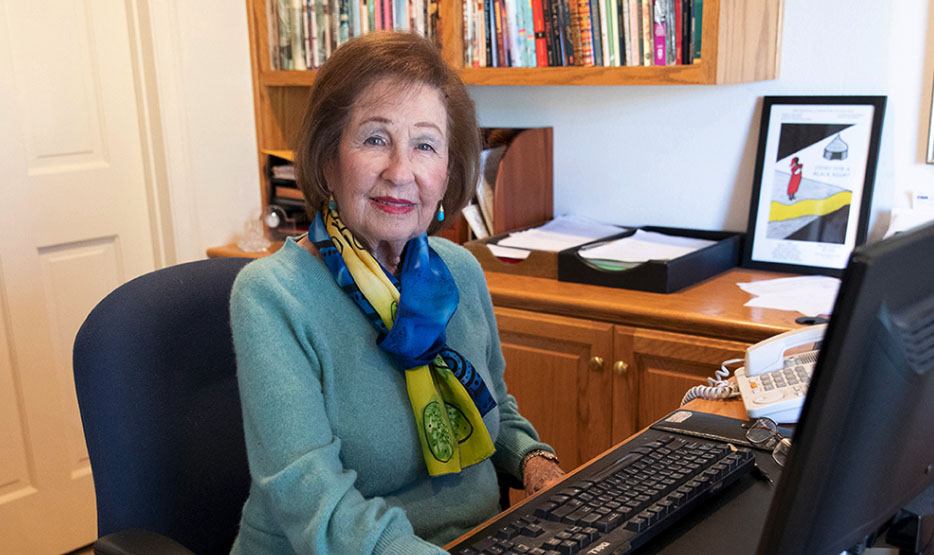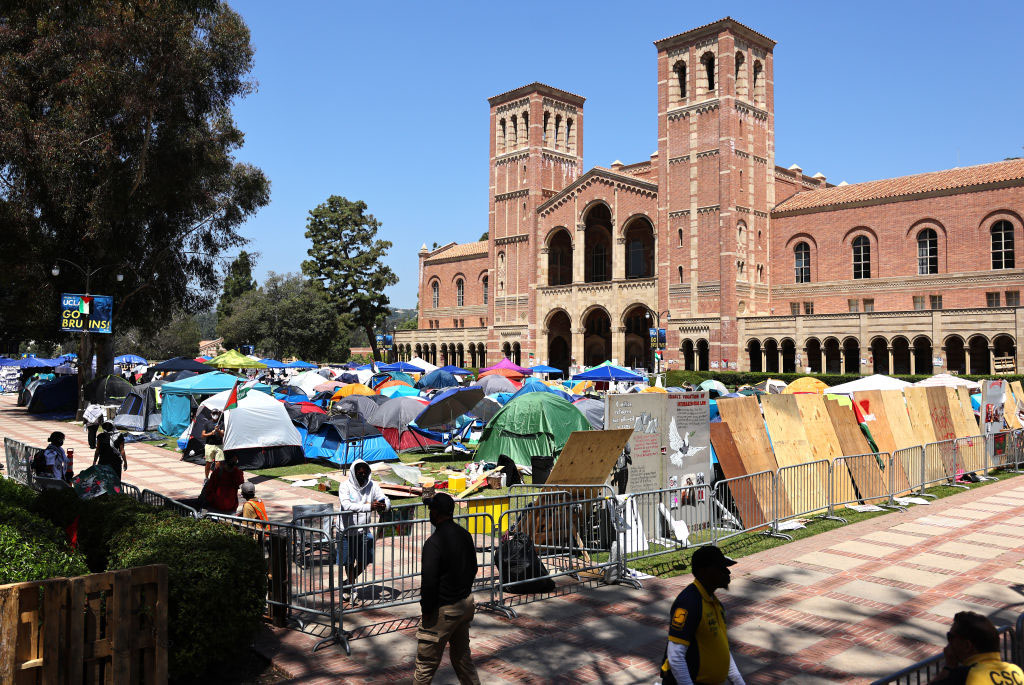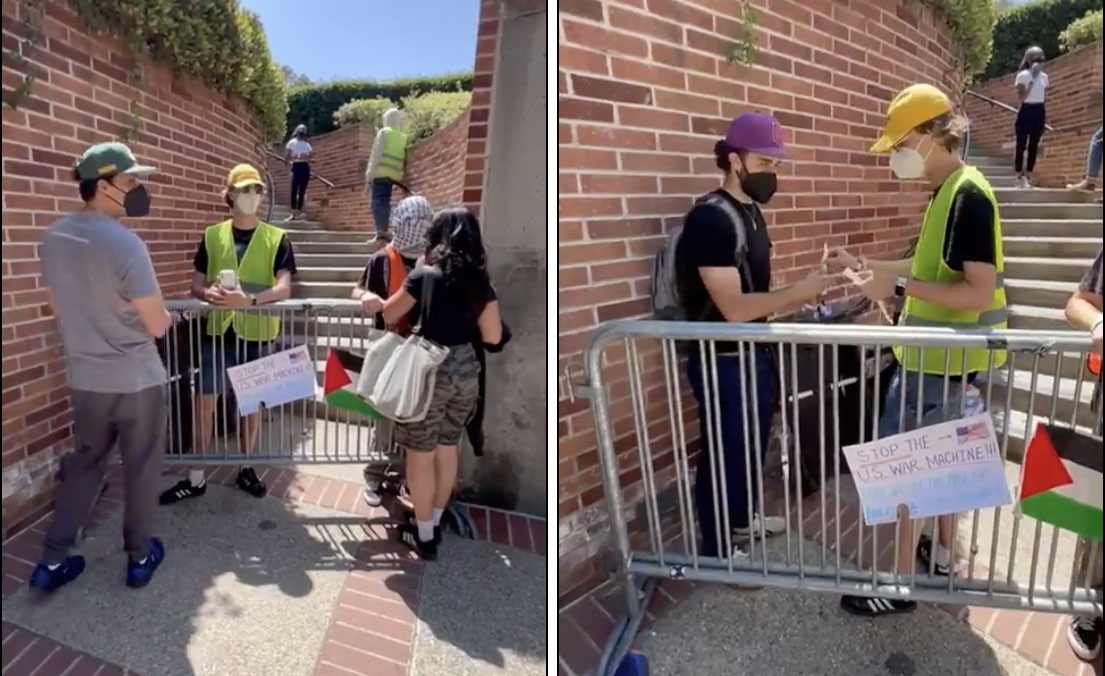 Author and playwright Sonia Levitin (Photo used by permission from Sonia Levitin)
Author and playwright Sonia Levitin (Photo used by permission from Sonia Levitin) Sonia Levitin, renowned author and playwright, described her new play “Chained” as “when ‘happily ever after’ goes sideways you file for divorce. Simple, right? But what happens when Jewish divorce law gives your husband the power to refuse to let you go?”
Levitin’s work, set against the backdrop of an Orthodox Jewish community, unravels the complexities of romantic relationships and societal pressures.
“It started as a play about this issue, but you don’t do a play just on an issue, you do a play that has to be multifaceted,” Levitin told the Journal. “Chained” recently received a staged table-reading at the Hertz Theatre at the Museum of Tolerance. At the heart of the play is a couple, Miriam and Shelly who have been married for 12 years. They are embroiled in a battle over the refusal of Shelly to grant Miriam a “get,” thus preventing her from remarrying within the Orthodox community. Levitin peels back layers of their lives, revealing the husband’s struggle with his own sexual identity and his wife’s struggle to balance her devout religious commitment with what aches within her soul. Levitin plans to mount a full production of “Chained” in the fall of 2024.
Levitin doesn’t think “Chained” is a critique of the “get” system but a deeper exploration of personal identity and freedom.
“It’s really about a marriage breaking up and the story turns out, it’s more Shelly’s story, how he’s able to overcome who he is and become a total person,” Levitin said. “It’s about people understanding themselves and the position they’re in now — what led to it and how they have come to terms with who we really are.”
Levitin’s approach to the play was enriched by extensive research and interviews of people in the Orthodox community. She spoke of interviewing a gay man who was Orthodox and had left a marriage. Levitin also drew upon her experience in leading healing-through-writing seminars for women. After a close friend of Levitin went through the divorce process, she asked Levitin to do a seminar with her and other women struggling in similar situations.
“We did healing through writing seminars and I worked with about 10 women a couple of years ago — it was very successful.” Levitin said that the participants worked together, sometimes with emotions raised and tense, but it was always a part of the process of writing to heal. “I had them do poetry, which they thought they could never do, and it was the best class of all.”
Beyond the stage, Levitin spoke about how the arts have been her own most valuable source of healing. She may be best known for her 1970 novel “Journey to America,” part of a trilogy of books based on her family’s escape from Nazi Germany in the late 1930s, and their early years in America. It is one of the most prominent young adult novels about the Holocaust from a youth’s perspective. The series led to speaking engagements worldwide, covering topics like slavery, genocide, the Holocaust, and promoting creativity and literature.
“Chained,” her third play, returns to Levitin’s familiar themes.
“I’ve written a lot of my stories about freedom and cultural confrontation,” Levitin said. “I believe that the arts are our personal road to freedom, expressing, understanding and sharing. I’ve talked about loneliness. Through the arts we communicate. I’ve met people sometimes who don’t know me, who read my books. I remember I was at a big conference and a woman came up to me. She was a teacher and she had used a lot of my books with her students, young adults and children. And she looked at me and she said, ‘I think I’ve read all of your books’ and she just burst into tears.”
“I believe that the arts are our personal road to freedom, expressing, understanding and sharing. I’ve talked about loneliness. Through the arts we communicate. – Sonia Levitin
Civic engagement and education have always been a major part of Levitin’s life. One of her earliest jobs as an adult was teaching English as a second language and U.S. Citizenship test preparation. She also taught creative writing at UCLA Extension. In 1965, Levitin and her husband Lloyd were co-founders of the Moraga Historical Society in Northern California. Its mission is to gather and preserve knowledge about the history of the land grant Rancho Laguna de los Palos Colorados, land now occupied by the town of Moraga and portions of the cities of Orinda and Lafayette. Levitin herself served as president in 1969.
Since the 1980s, Levitin has been a regular speaker at the Simon Wiesenthal Center and Museum of Tolerance, sharing her story with students.
From 1997-2012, Levitin and her family endowed the Once Upon A World Children’s Book Award through the Museum of Tolerance. The award annually recognized books two books that “support and perpetuate the values and mandate of the Simon Wiesenthal Center/Museum of Tolerance by honoring children’s books aimed at young readers (ages 6-8) and older readers (“tweens” ages 9-12) which deal with issues of tolerance, diversity, and social justice, thus inspiring readers to promote positive change in the world.”
Levitan believes that the more people are exposed to the arts, the more connected to themselves they become. That self-realization ultimately leads to better community connection.
“We live in existential loneliness,” she said. “Sometimes it comes out and we push it away. I push it away through the arts and through relationships, friendships. But even then, every friendship will not help you in that regard. Literature will, because when we tell the truth in our literature, we really connect to the other person in a way that we often can’t do in real life.”
For updates about “Chained” and more information about Sonia Levitin, visit her website: https://sonialevitin.com/























 More news and opinions than at a Shabbat dinner, right in your inbox.
More news and opinions than at a Shabbat dinner, right in your inbox.